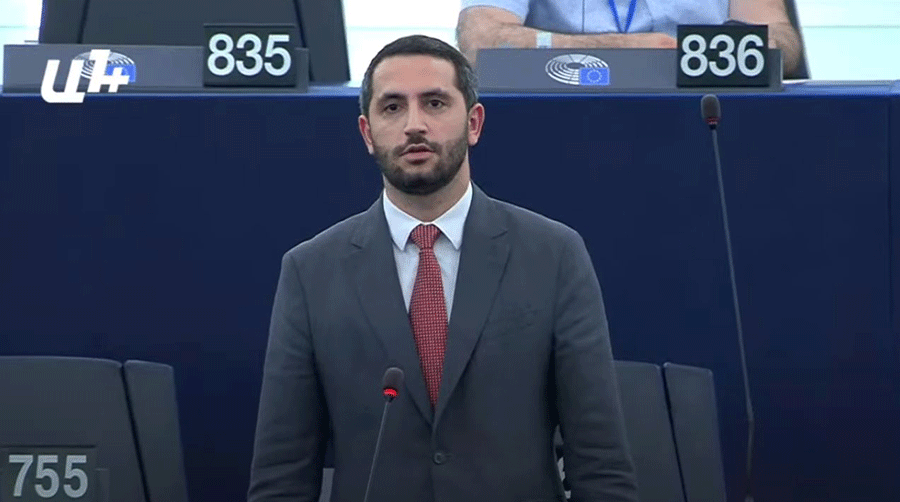Their goal was to decrease the number of delegates, and it would be possible to defeat the adoption of the Resolution by not providing a quorum or the minimum number of votes. As you saw, it didn’t happen,” Ruben Rubinyan, Head of the Armenian delegation to the PACE, answered Aravot.am’s question, “Was the event organized by Azerbaijan specially planned during the voting on the report on “Ensuring free and safe access through the Lachin Corridor?”
Samad Seyidov, Head of the Azerbaijani delegation to the PACE, insisted that all recommendations be discussed in the Assembly, regardless of whether the committee voted against them. Therefore, we asked Ruben Rubinyan why the Assembly discussed the recommendations already rejected by the Committee, especially since he seemed annoyed that Azerbaijan was extending the time.
Ruben Rubinyan answered: “First of all, let me say that I highly appreciate the adoption of this Resolution and recommendations. 2/3 of the voters were needed for the adoption of the recommendations, and the delegation of Azerbaijan tried to defeat this first of all because it is a little more challenging to accept. I was not nervous at all; I was merely calling on the deputies not to leave the hall suddenly because Azerbaijan’s goal was to extend the time so that the number of PACE delegates would decrease and it would not be possible to adopt the Resolution. And why was it so? According to the PACE Regulations, everything happens as follows.
The delegation of Azerbaijan proposed about 60 changes in the text, and naturally, all very bad changes. For example, they tried to remove the phrase Nagorno- Karabakh from everywhere, but the Committee rejected 99 percent of their amendments, and one or two non-problematic amendments were accepted.
Read also
However, they were rejected by 2/3 of the PACE Committee on Migration, Refugees and Displaced Persons, which means that amendments are not considered in the plenary session if they are rejected by 2/3 unless at least ten delegates oppose not discussing them and suggest discussing them. The plenary session happened precisely that.
The delegates of Azerbaijan and Turkey and one or two more delegates, whose names I have not yet seen, stood up; about twelve people, and according to the regulations, already in the plenary session, had to discuss the rejected proposals of amendments of Azerbaijan individually, and they, naturally, again were denied.”
Ruben Rubinyan emphasized that the rapporteur confirmed all our claims regarding the illegal blocking of the Lachin Corridor, the racist and hateful speeches of the Azerbaijani leadership, and all other matters and that is very important.
Ruben Rubinyan responded to our argument that although Azerbaijan’s proposals were almost not accepted, they managed to implement the proposal according to which the phrase Nagorno-Karabakh was removed from the first paragraph of the report, and to the question whether this was also a tactical move by PACE: “Actually, not so much by the PACE as by the reporter, but it doesn’t change anything at all, because Nagorno- Karabakh is called Nagorno- Karabakh about ten times in the report.
In addition, in that one place, whether it would be or not was not important. The context of that paragraph was different.”
Ruben Rubinyan responded to our observation, but it was removed from the very first paragraph, and it turns out that the dispute is between Armenia and Azerbaijan, not including Nagorno-Karabakh.
“It turns out that it is said that the dispute was between Armenia and Azerbaijan, but it is not specified whose participation, when, and where. In other words, it is not particularly a problem.”
Tatev HARUTYUNYAN

























































